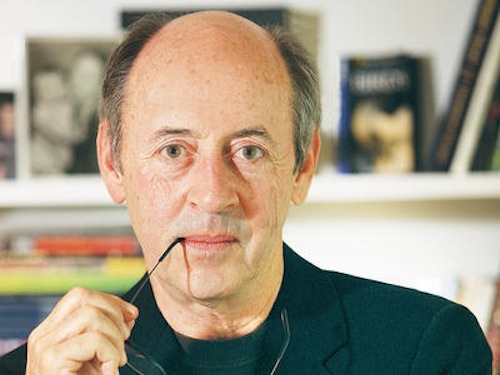Belz on Collins

Aaron Belz wrote a review of Billy Collins' Horoscopes for the Dead for Cardus. The review looks in great detail at a number of poems in the collection while thinking about the entire book, and is worth the read post-jump.
Here, though, is Belz's defense of Collins-the-oft-criticized:
I've always liked Billy Collins. I've wanted to tell the world that he's a metaphysical poet, a child of the 17th century. I've wanted to say to his critics: Stop judging him according to modernist standards; he's not doing the modernist thing. He's not even really a postmodernist, as I've heard him called, but rather a son of John Donne and Andrew Marvell: witty, socially hyper-aware, and given to extended analogy. He constantly discusses love, time, and death in terms of the commonplace. The famous metaphysical conceit, as defined by my trusty reference volume, J. A. Cuddon's Dictionary of Literary Terms and Literary Theory, 3rd Ed. (Basil Blackwell, 1991), is marked by a "preoccupation with analogies between macrocosm and microcosm . . . [marked by] wit, ingenuity, dexterous use of colloquial speech, considerable flexibility of rhythm and meter . . . a liking for paradox and dialectical argument, a direct manner, a caustic humour, a keenly felt awareness of mortality, and a distinguished capacity for elliptical thought and tersely compact expression." Doesn't that definition perfectly fit Billy Collins?
If there's a difference, it's that his expression is not "tersely compact," but rather breezy and prosaic. The Metaphysicals were rigorous about form, foot by foot, line by chiseled line. Collins goes about verse more like a casual shopper, browsing from item to item, turning each over in his hand to inspect it. His logic doesn't miss a twist, nor is it ever unclear what he's saying in his poetry, but his music is not intense. If it were, though, there's a good chance he wouldn't be as widely read in the age of fiction. Important to note, fiction as we know it didn't exist in the 17th century. Literary historians consider Samuel Richardson's Pamela (1740) to have been the first novel. So the knock against Collins that his music is weak sauce, its lines replaced by sentences, might be countered by an explanation that he has adapted appropriately to his era. Critics also carped about Walt Whitman's prosody as grass grown too long and, as they saw it, in desperate need of mowing. An unsigned review in the January, 1882, Atlantic lamented Whitman's "frequent feebleness of form and style which reduce large portions of [Leaves of Grass] to tedious and helpless prose." But almost all of Whitman's contemporary critics regarded their subject as immoral and humourless, too, which I've never heard anyone say about Collins (at least not about his poetry).
Go ahead and read the rest.


